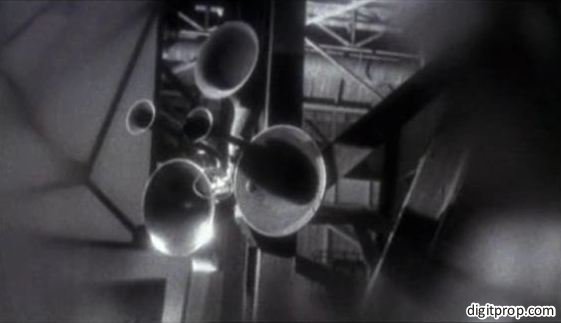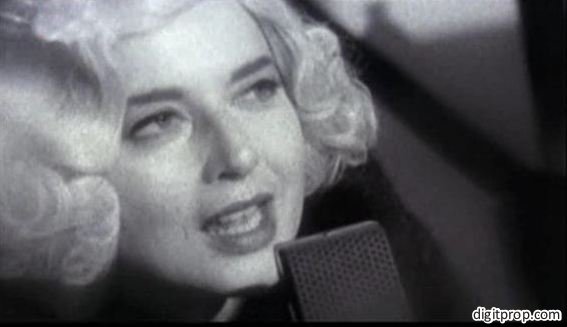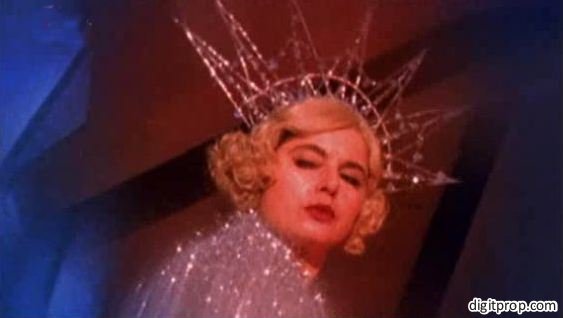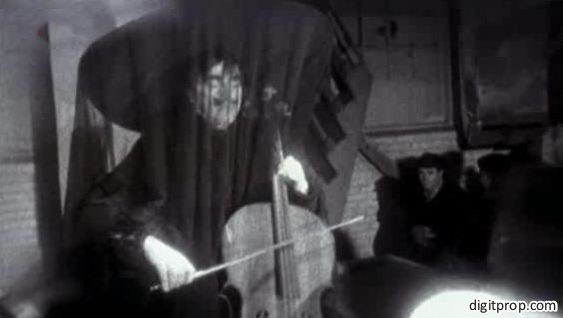The Saddest Music in the World
Another movie by Guy Maddin, and equally nonconformist, fascinating, and beautiful as Careful. ‘The Saddest Music in the World’ is a very unique film, and as Careful, it comes with its very own, very unconventional visual language.
It’s the 30ies, shortly before the end of probhition, and everybody is drowning in the global depression. Lady Port-Huntly, the owner of a Canadian beer company from Winnipeg, knows how to seize the opportunity: As soon as the prohibition is gone, millions of American drinkers will return to beer. And what instills the thirst for alcoholics better than melancholy?
The conclusion is obvious: Muskeg beer starts a contest for ‘the saddest music in the world’. Hundreds of musicians from all over the world follow the call, and intend to ‘lay claim to the jewel-studded crown of frozen tears and 25 thousand dollars in prize money. That’s right, 25 thousand depression era dollars.’
However, we are particularly interested in the fate of two brothers, who – due to rather bizarre circumstances – represent the USA and Serbia respectively. While the contest is going on, and we see a variety of musical performances from folklore groups all over the world, it dawns on us that it’s all about – for the lack of a better word – love pentagon, involving the two brothers, their father, Lady Port-Huntly herself and Narcissa.
No use in explaining who Narcissa is – go see the movie. It’s complicated, but Maddin manages to show the simplicity behind the complex, the constants of human desires and trials. And when we are finally ready to suspend our disbelief, to see the sorrow of the protagonists behind the retro style filming, the hilarious stereotypes, he ramps up the parody factor to turn everything into a brilliant, albeit somewhat sarcastic, comedy.
The Saddest Music has been called a ‘musical’, but I think that’s not fair. To me, it is foremost a comedy, transcending a range of categories and styles to tell a simple story about egotism, personal battles, and love. It sure has music in it (duh!), but that music is merely setting the stage. In fact, Maddin ensures that the music is delivered in the least enjoyable – and hilariously comic – way: Two bands from different countries go head-to-head into the musical battle, playing their corny folklore tracks alternatingly and – as the battle nears its climax – simultaneously. Which nicely illustrates the pointlessness of competing for the saddest music in the world.
The winner of each round takes – must in fact take – a slide into a pool of beer. Depression era entertainment at its best. Well, we can be lucky that we can watch the spectacle from the safe distance of the new millenium, or so it seems… if you look closely enough, you will easily recognize the cruel and mindless misanthropic ‘entertainment’ that’s dished out by contemporary media.
The Saddest Music is also a jibe at Maddin’s home town Winnipeg, which, the introductory announcement for the contest states, is the ‘world capital of sorrow’. However, as with many artists in a love-hate relationship with their home town (or country, for that matter), it’s rather obvious that Maddin has a deep affection for Winnipeg and its melancholic and struggling 1930ies denizens.
Great praise deserves the cast: Lady Port-Huntly is played by Isabella Rossellini, and she does a great job conveying both the glamour and the tragedy of her character. The Lady, being an obscenely rich beer baroness admist the poverty of depression-Canada, has a bitter secret of her own. Due to a rather bizarre car accident involving above-mentioned father and son, she has lost both her legs. Now her dearest dream is to be able to walk again, a wish that seems to be fulfilled when she gets two artificial legs – made of glass and filled with Muskeg beer, no less.
If you feel uncomfortable at the thought of a legless woman delightedly praising the clean, sparkly beauty of her new, beer-filled glass legs, you are not the only one.
Ross McMillan plays one of the brothers, Roderick Kent, who has migrated to Serbia where he became ‘Gravillo the Great’. Gravillo is the prototype of the melancholic, a figure with multiple levels of tragedy woven into his life, so tragic in fact that it’s outrageously funny.
No one has seen Gravillo’s face, as he wears a veil ‘as black as night’ all the time, so as to express the ‘national sadness of Serbia’ over being the cause of the World War I. A clear parody of ‘the man in black’, Johnny Cash, Gravillo is mourning the 9 million dead of the war, but also his dead son, whose heart he always carries with him in a jar.
It’s these little details, executed perfectly by cast and photography, that make this movie so interesting. And make no mistake: The greatest thing about this movie is how entertaining and funny it is.
I tent to be somewhat nervous when a 2003 movie starts black and white, and stays that way almost entirely, with a few colored scenes thrown in. In this case, the effect is not the least bit annoying, and in fact the deliberately low quality of the visuals (mimicking the distorting and field-narrowing effects of early cinematographic techniques) adds to the already powerful atmosphere.
If you want to see an ‘artsy’ independent movie, but want to be thoroughly entertained at the same time, you cannot go wrong with the Saddest Music.
The Saddest Music in the World at the IMDb
Watch The Saddest Music at Amazon
 This work is licensed under a Creative Commons Attribution-NonCommercial-NoDerivatives 4.0 International License. For more details on what you can and cannot do with my work, see here.
This work is licensed under a Creative Commons Attribution-NonCommercial-NoDerivatives 4.0 International License. For more details on what you can and cannot do with my work, see here.





